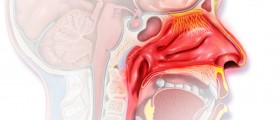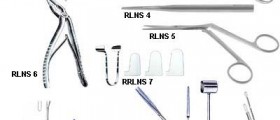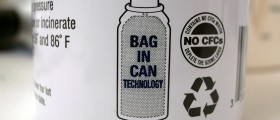
Sinusitis
Sinuses are cavities located in the bones of the face. Thesespaces are normally empty, but nevertheless play an important role in therespiratory system. Inflammation of the sinus or sinuses is known as sinusitis.Inflammation is usually caused when allergens, such as dust, pollen, mold orchemicals, damage the lining of sinus cells. Common cold virus is also known toprovoke sinusitis. Inflammation is followed by mucus secretion and blockage ofthe sinuses. Fluids can accumulate in sinuses, and when they reach certain massit affect the ears and leads to dizziness.
Sinusitis Dizziness Symptoms
Most people experience symptoms similar to common cold. Theycould have problems with the fever, tiredness, weakness, cough, sneeze and differentnose problems (dripping, runny nose, congestion). Sinusitis can also lead tojaw and teeth pains.
Dizziness caused by sinusitis happens when the inflammationaffect the ears and is commonly called vertigo. Other cause might be theinflammation of the area around the eyes, which also have started as sinusitis.Patients feel disoriented, unstable and can’t stand straight. People complainingabout swollen (or inflamed) eyelids experience headache after getting up in themorning.
Sinusitis Dizziness Treatment
The treatment is fairly simple – take some time off. Workingwhile having sinus infection might prove as mission impossible, so take somerest. Dizziness is just a consequence and sinusitis is the thing that should betreated. Once, you cure the sinus inflammation, dizziness should go away.
Proper rest and medications or decongestants usually takeabout 14 days to clear off the infection. Most specialists recommend strengtheningthe immune system and avoiding potential allergens, to prevent return of theinfection.
Sinus infections caused by bacteria are treated with antibioticmedications. Doctors recommend antibiotics capsules to be used several times aday. Antibiotics travel through the body into the blood and when they reachsinus cavities, they destroy the harmful bacteria and banish the infection. Makesure to use these drugs precisely as the doctor prescribed, and as long ashe/she advised. It is important to follow doctor’s orders, even if you already feelalright and don’t have any more symptoms.
Viral sinusitis can’t be treated with antibiotics, sincethese medications don’t affect viruses. Doctors usually prescribe nasaldecongestants and sprays, or sometimes steam inhalation, in order to decreasethe inflammation. Sinusitis can be associated with severe headache, and inthose cases specialists advise inhaling the steam with some eucalyptus essentialoil drops.
Chronic sinusitis is diagnosed when someone experiences anumber of recurrent sinus infections. Ear, nose and throat specialist performs asurgical procedure, removing part of the sinus that is permanently inflamed.

















Your thoughts on this
Loading...